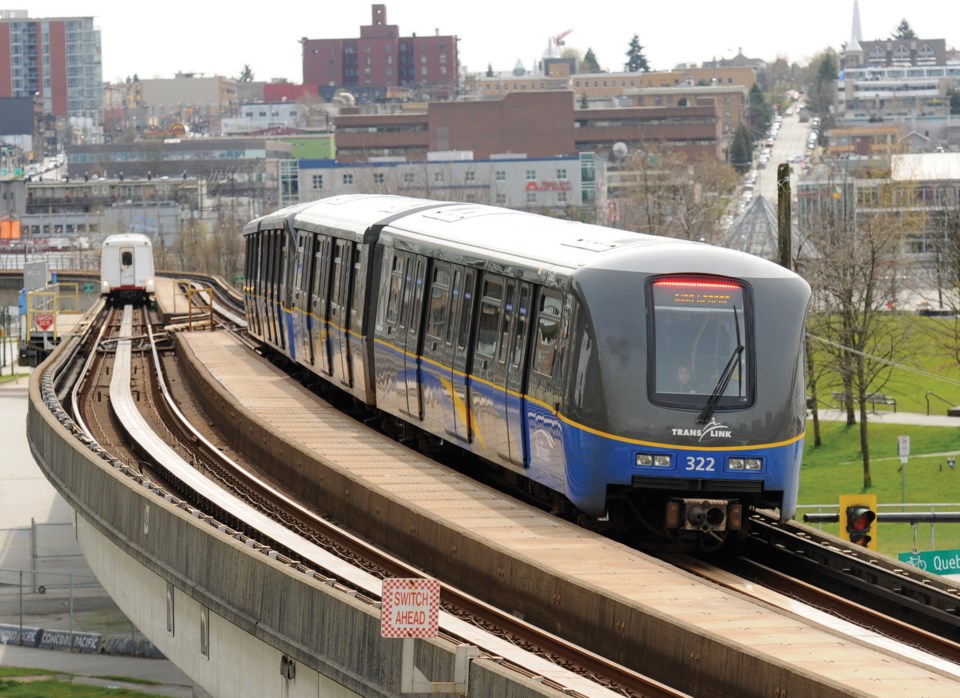You may have not noticed the recent silence following the frantic opening in the campaign around the transit plebiscite, but the paucity of noise was more than made up for by the angst and anger capturing headlines over the bunker fuel spill in English Bay.
But with six weeks left to go in this marathon event, the Yes side is cooling its jets for now in their come-from-way-behind effort to win over an electorate exercise forced on them by Premier Christy Clark.
We are here thanks to a moment of whimsy (to be kind) during the last provincial election as Clark attempted to get herself off the hook on the issue of funding regional transportation infrastructure.
She insisted on a process foreign to Canadian political culture and more popular south of the border where results are not uncommonly perilous.
But the vast majority of regional political leaders decided to grin and bear it.
So here we are.
At this point the advertising campaign by the mayors’ council is coming to an end. The work of the Yes campaign, made up of over 130 community, labour, environmental and business groups, is avoiding, as one of their leading lips put it, “stirring the pot.” Why give the No side any reason to get ink?
There will be another more visible push near the end.
For now they are continuing to “work on their lists” making phone calls supporters to get out the vote. And on that point they are somewhat buoyed by the fact that so far the turnout is low. They believe the lack of a significant effort by the No side to get out their supporters due to lack of resources is the reason for that.
As of Wednesday, according to Elections B.C., 15.1 percent of eligible voters have had their ballots pass through the painfully archaic first level of acceptance.
In an age when the whole world is conducting business by moving data electronically, Elections B.C. has a process where each ballot must be handled physically several times before it is counted.
Nonetheless, of the ballots making it past the first hurdle, 41 per cent of them are from Vancouver where the Yes side sees their main support.
Meanwhile TransLink, the No side’s principle target, has managed to avoid any scandalous behaviour for weeks now. In fact, the interim CEO Doug Allen has been pushing back. He sent a letter to Delta mayor Lois Jackson, prompted by her recent ambivalence over the plebiscite. She originally voted for it and supported the transportation plan the tax increase is proposed to fund.
Allen writes: “TransLink has been incorrectly characterized as wasteful and unreliable. The real facts have been validated by numerous, respected third parties such as academics, Moody’s Investors Service (the leading provider of credit ratings), industry associations in Canada, the United States and Europe.”
It was all for naught. Jackson decided that before her council should take a position on the plebiscite she would ask Delta’s 68,922 registered voters for their opinion. Based on receiving 200 emails, 120 of which said they would vote “no,” Jackson decided to longer support the plan or the tax increase.
She will get her new bridge across the Fraser to replace the ancient George Massey Tunnel as promised by the premier no matter what the results of the plebiscite are.
And need I remind you of Surrey mayor Linda Hepner? She’s supporting the plebiscite but has told her constituents that even if it fails they will still get their light rail transit before her first term is out.
But all that aside, the issue that is troubling a frustrated chair of the regional district, Port Coquitlam mayor Greg Moore among others is this: “Where will this all end?” Meaning the demand by the province for municipalities to hold a plebiscite before launching new capital programs. “Where do you stop this? What if we want a new recreation centre in our community, or you want a new St. Paul’s Hospital?”
Given that the province can announce massive capital projects, including many that will be built in the Lower Mainland, without a plebiscite, he wonders why should you have to go to the electorate for each and every project?
“That is why you voted for me,” to make those decisions, he said.
Indeed.
twitter.com/allengarr
agarr@vancourier.com



